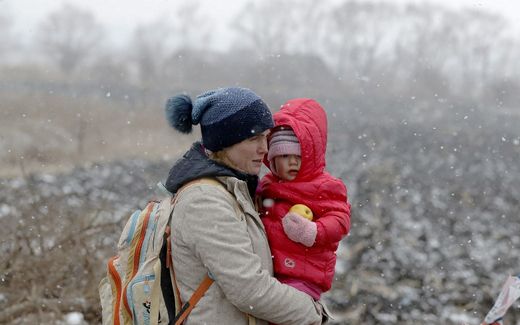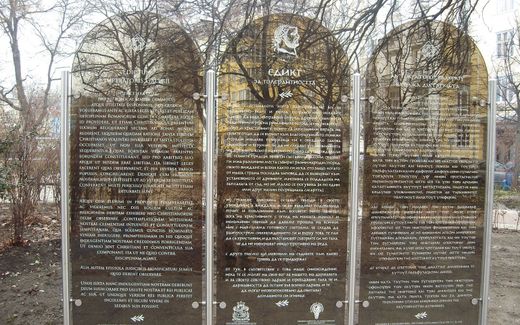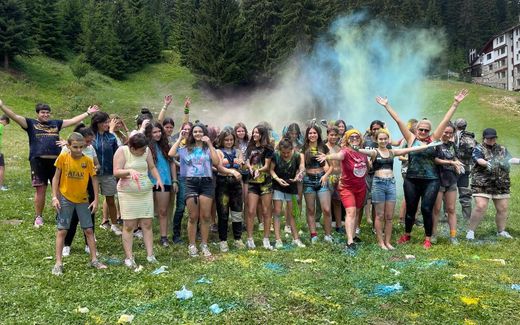Weekly column from Bulgaria: finding ultimate home for the homeless
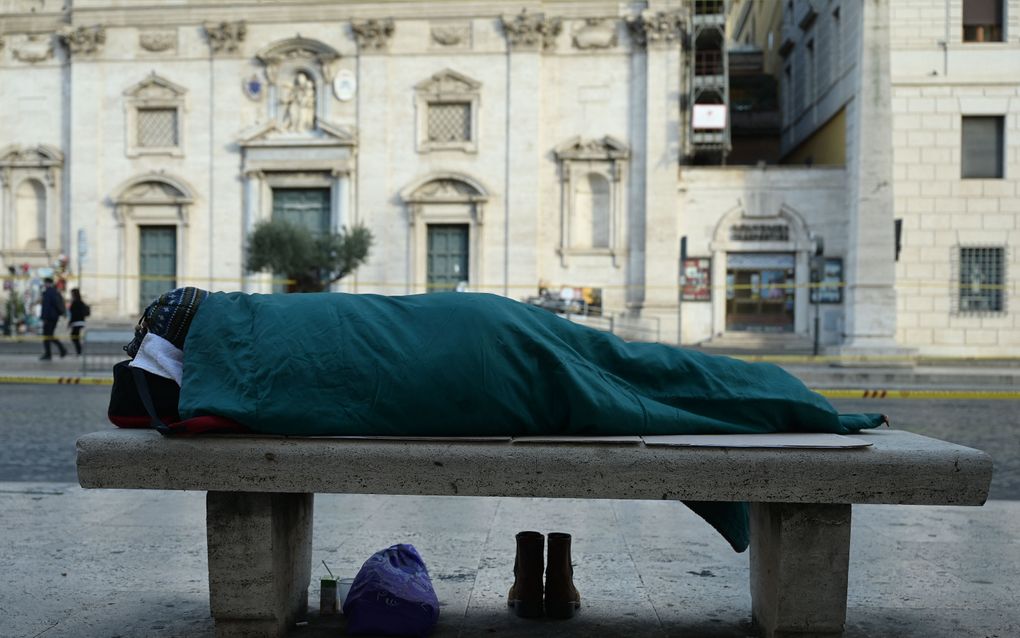
Photo AFP, Vincenzo Pinto
Christian Life
Metodi lost everything: his family, his home, his sense of security. Heavy drinking took its toll and left him alone on the street with nothing but a set of clothes on his back. Years ago, his neighbours in “Banishora”, a district of Sofia, used to call him “Mr. Mayor”. They did so because of his polite and educated manner of speaking. They enjoyed listening to his explanations of global affairs.
However, due to alcohol abuse, Metodi’s health deteriorated. More and more, he experienced disorientation and often lost his balance. One day he met volunteers from Mission Without Borders, a ministry whose main cause is throwing a lifeline to homeless people.
And so, for the next five years, Metodi found hope and love. Every day, he lined up in a park to receive a warm meal. On a number of occasions, volunteers took him to hospital for emergency physical treatment after he was found on a sidewalk, helpless and immobile.
Vlady Raichinov (1974) is translator of both fiction and theological literature. He is a member of the Union of Bulgarian Journalists, co-hosts a radio program, and writes articles.
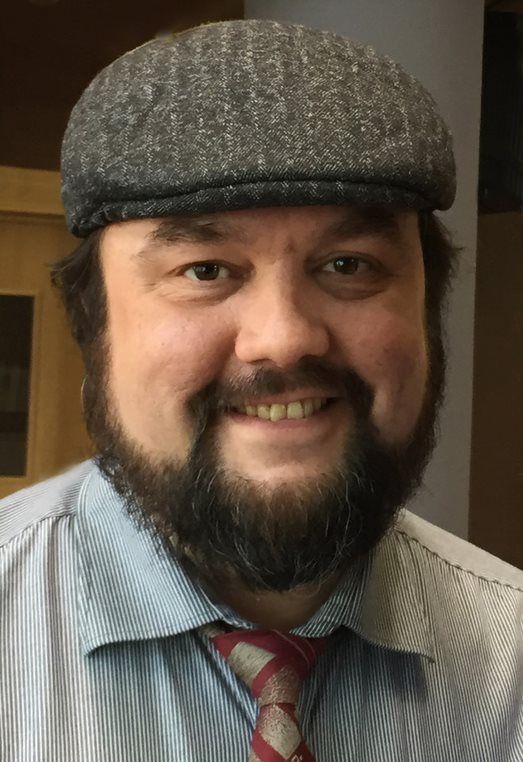
He presides over the Bulgarian Evangelical Society, publisher of "Zornitsa" – the oldest Bulgarian newspaper that has been in print since 1871.
In December 2014, Vlady was ordained as a minister with the Bulgarian Baptist Union and is currently serving in the pastors' team of First Baptist Church, Sofia. He is also vice president of the Bulgarian Evangelical Alliance.
Vlady and his wife Katya parent a beautiful pre-schooler named Maria.
One of the main ministries of Mission Without Borders is called “Street Mercy”. For eleven years, its minibus has regularly distributed food from a catering firm (a bowl of soup and some bread) in two locations in Bulgaria’s capital, Sofia. This program is set up in partnership with a Baptist and a Pentecostal church, who donate clothes and send volunteers to help with food distribution. Mission Without Borders (Bulgaria) is a branch of an international organisation with the same name, operating in eighteen countries round the globe.
Heavy
According to the independent charity organization “Caritas”, there are hundreds of thousands homeless people in Bulgaria today. Officially, the governmental Agency for Social Assistance does not have relevant statistics. It is estimated, however, that about two thousand people annually lose their homes and are forced to live on the streets. A decade and a half after Bulgaria joined the European Union, it remains the poorest of all EU nations, with one of every three Bulgarians living in high or extreme poverty. Corruption, a weak judiciary system and organised crime hold the country back and hamper its economic prospects.
Most of the homeless people in Bulgaria are victims of real-estate frauds, quick credits, or callous relatives who have robbed them out of their property and savings. Various asylums, half-way homes and private-owned crisis centers have tried to respond by providing sleeping shelters, shower rooms, clothes and food. They are usually busiest in early December and through the cold winter months. Most of these facilities are run by non-governmental organizations. They heavily rely on volunteers and are supported through private donations.
The Bulgarian Agency for Social Assistance has ascertained that there are generally two types of people at risk: some fall into a state of helplessness due to a crisis, while others embrace this lifestyle. The first group are ready to seek and accept help because they have retained hope that someday their situation can improve. The second group, however, has gotten used to living on the street and only seek temporary help.
Existence
For several years now, the Agency has been working on new legislation, trying to clarify definitions of people at risk – specifically those who would choose a life of homeless existence. However, due to the pandemic and the political instability in Bulgaria, this effort is unfinished.
As an urban phenomenon, homelessness leads to several problems. In what ways is it possible to provide homeless people with adequate medical help? Are social services equipped with expertise and capacity to ascertain psychological diseases (anxiety disorders, disruptive behavior, schizophrenia, depression, etc.) among homeless people? How are child protection services able to collect truthful information about babies, children and minors who live on the streets – specifically in relation to their health, happiness, education, and family environment? How are vulnerable homeless women protected from trafficking networks? What about Middle Eastern or Ukrainian refugees who also end up on the streets of larger cities, with no points of reference, no language awareness, no jobs?
Help
Various Christian ministries have toiled hard to respond in some ways to these challenges. Beyond their daily work in the gutters, they also try to raise awareness and encourage people to consider helping. There are many ways to extend a hand: volunteering in a center for temporary housing or warm soup delivery; donating basic household items, clean and new hygiene materials or objects of everyday use; donating well preserved clothes, shoes or blankets; help one of those ministries by creating a fundraising campaign for them; paying for a hostel room of a vulnerable mom with a child; speaking up, interceding and sharing ideas and testimonies on social media; giving away food vouchers, etc.
In its own corner of this vast field of difficulties, Mission Without Borders and its team of faithful volunteers has done a valuable work in reaching vulnerable groups with material, spiritual or emotional help: institutionalized children, rural area families, lonely elderly people, members of clubs for people with handicaps, homeless, prisoners, etc. Their long-term goals are to assist those underprivileged and oftentimes forgotten people in order to install them with the ability to lead a restored and dignified life.
Currently, the mission is assisting about 130 families through a sponsorship program; providing a warm meal to about 420 people in Sofia through their “Street Mercy” project; and helping some 1,500 children on a regular basis with backpacks, school supplies and simple assistance.
But this is not all. More than anything else, Mission Without Borders is a group of Christians committed to share the Good News of salvation through Christ. Here is what Sarkis Ovanesian, director of Mission Without Borders, says: “Only God Who is seated on His throne above, has the power to change the situation. He says, “Behold, I am making everything new!” These words are trustworthy and true. Indeed, our hope is in Him. Only He is able change people’s lives.”
Medications
One day at noon, during the regular delivery location of “Street Mercy”, Metodi showed up in a very serious condition: he had been drinking counterfeit brandy all morning. He couldn’t speak clearly, and he wasn’t able to do even a few steps with his orthopedic walker without losing his balance. The mission took him to a doctor, but he had to wait for a whole week before being hospitalised for tests. This is when the medics discovered that his brain was severely damaged due to years of drinking. With the mission’s overview, after months of medications and treatment, he was able to reach some level of recovery.
However, soon after that, he stopped coming to the daily distribution of warm meal. For a period of two months, no one knew his whereabouts. And then, someone told Mission Without Borders that Metodi was hiding in an abandoned electric substation in an extremely dirty setting. He had slipped back to drinking, lost his walker and was practically unable to stand up or move from that place.
Helpless
As Anna Atanasova, “Street Mercy” coordinator for Sofia, heard about his situation, she felt an inner conviction that something needed to be done. “The Lord reminded me of the parable of the Good Shepherd,” Anna said. “How he would leave his 99 sheep in order to seek the lost one.” And so the team went out to search for Metodi. They found him lying on a dirty old mattress, half naked and totally helpless. All kinds of trash, empty bottles and torn clothes lay on the floor around him.
While they were considering how to help, Anna felt a strong conviction to tell Metodi to accept Christ. The poor man was in a clear state of mind at that moment, and he confirmed that he believed in the Lord Jesus and accepted His love. “Lord, forgive me that I wasted my forty years of life in drinking!”, shouted Metodi in his prayer, as he was accepting Christ’s salvation. Those were his last words. Shortly after that he lost consciousness, and a few minutes later his heart stopped in the ambulance which had come to take him to hospital.
Despite its sad end, Metodi’s final day is also a story of silver-lining. A wasted life, after four decades of heavy drinking, after years of social neglection and spiritual failure – anyone could be in Metodi’s torn shoes. However, even the most helpless and hopeless homeless person is not beyond the reach of God’s saving grace. Today, Metodi has a home: in the embrace of the Creator. All God needs are Christian ready to step up and follow His call. God’s love will do the rest.
Related Articles



